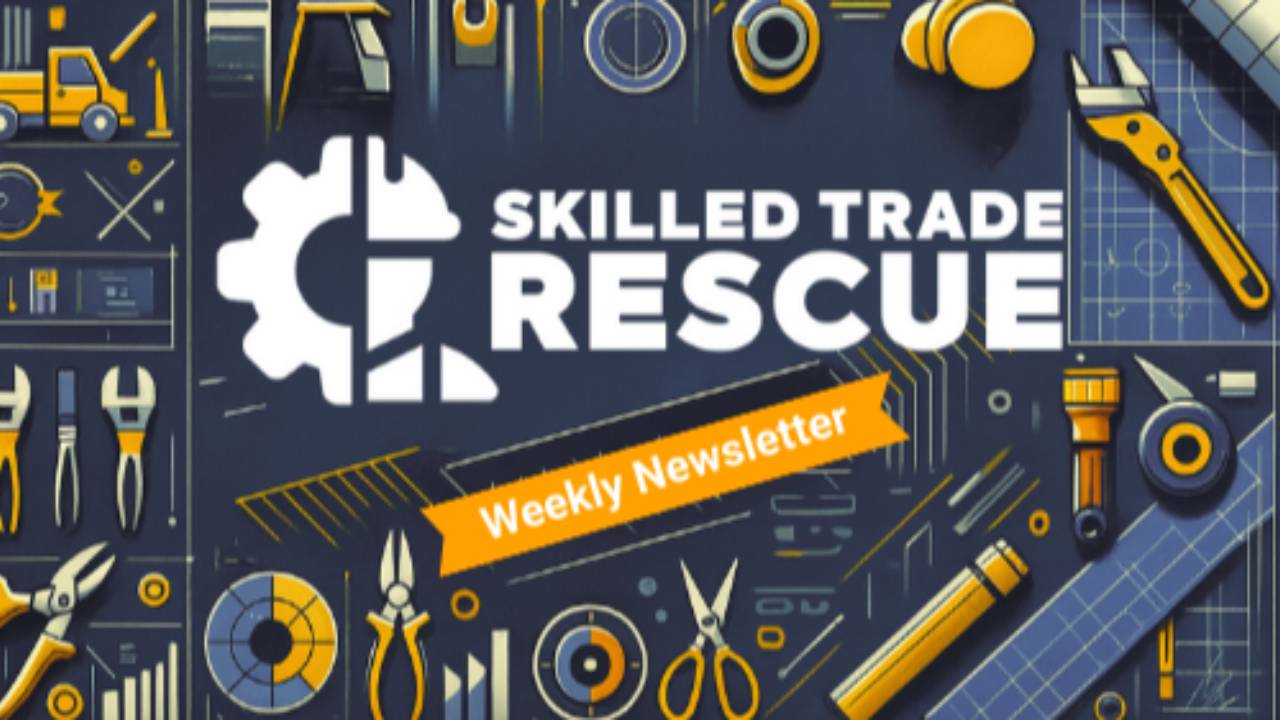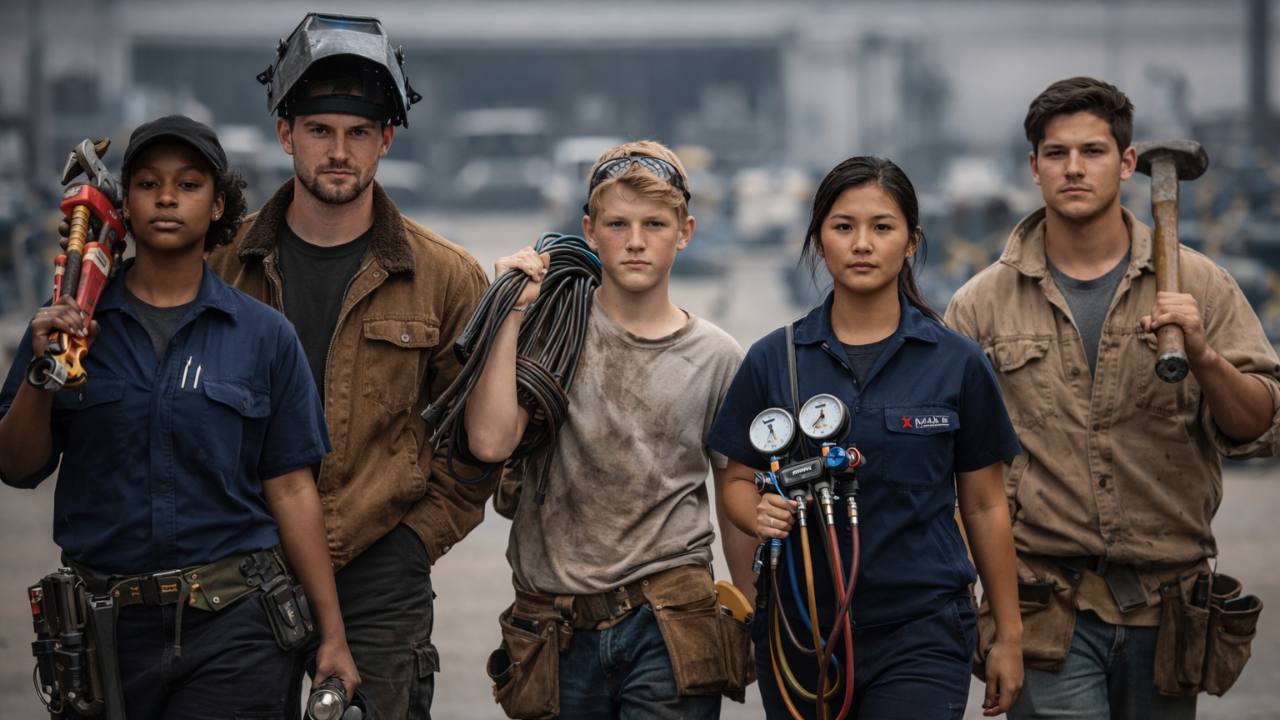Mentorship: The Shortcut You Can’t Afford to Miss
Skilled Trade Rescue Weekly Newsletter: Mentoring Skilled Trades Professionals for Success in Business and in Life
The Feel of Being a Tradesperson
The kid was green. Fresh out of tech school. Could quote schematics all day but held a wrench like it was breakable.
Most of the old-timers wrote him off. Liability. Rookie. Dead weight.
But I saw something—hunger. So I took him under my wing. No textbook, just a pair of gloves and a ladder. I showed him the things you can’t Google: how a tight connection feels, how to read a site with your eyes and ears, how to talk to a client without sounding like a robot.

Mentorship is a Career Multiplier for Both
He screwed up plenty. But he learned fast. And a few years later, that kid had calluses, confidence, and his own crew. He became the guy contractors trusted for the big jobs. And when he needed an extra insight and a reliable guy? My phone was the one that rang.
That’s mentorship. And if you think it’s just charity—some “nice thing” you do for the rookies—you’re missing the point. Mentorship isn’t a favor. It’s a career multiplier.
1. The Real Lessons
Let’s get real: no one makes it far in the trades by themselves.
School gives you the basics. But the real lessons—the shortcuts, the hacks, the instincts—those live in the heads of the seasoned pros. And too many are walking off the jobsite for good without ever passing them down.
That’s a crisis. Because when the vets retire, so does their knowledge. The industry calls it “brain drain.” Out here, we call it wasted opportunity.
Martin's Pro Tip for Buisness: If your crew has a tech retiring soon, invite him or her to pick someone to mentor in the months ahead so that knowledge gets passed on and your team gets a level up.
If you’re an apprentice trying to figure it all out solo? Expect to waste years learning lessons the hard way. And if you’re a veteran hoarding knowledge, you’re not just hurting the next guy—you’re limiting your own growth, too.
2. A Two-Way Street
Mentorship isn’t a one-way handout. It’s a partnership.
For the Mentee:
-
Skill Acceleration: Learn in months what others take years to stumble through.
-
Guidance & Support: A mentor helps you dodge mistakes before they cost you time or money.
-
Connections: They open doors to crews, contracts, and opportunities you’d never see otherwise.
-
Confidence: When someone has your back, you start to believe in yourself faster.
For the Mentor:
-
Sharpened Skills: Teaching forces you to explain the why—and that makes you sharper.
-
Leadership Cred: Mentorship proves you’re ready for foreman or management roles.
-
Legacy: You’re not just building projects—you’re building people. And those people carry your name forward.
-
Payback: The apprentices you train today may be the ones sending you income tomorrow.
3. How to Start
-
Find Your Person. If you’re green, look for the pro who’s respected, not just loud. If you’re experienced, pick the rookie who’s hungry, not just present.
-
Ask or Offer. Mentees: say, “I want to learn—can I work alongside you on this part?”
Mentors: say, “Come with me, I’ll show you how this really works.” -
Keep It Real. This isn’t school. It’s a relationship built on respect. Share what you know. Own your mistakes. Ask questions. Give answers.
-
Track the Growth. Mentees: write down the lessons you pick up. Mentors: notice how much sharper you’ve become by teaching.
Why This Matters Now
The trades are changing fast. New tech, new codes, new expectations. The ones who will thrive aren’t just the most skilled with their hands—they’re the most connected, the ones plugged into a chain of knowledge that keeps them relevant and valuable.
Mentorship is that chain. Break it, and you stand alone. Build it, and you build a future.
Ready to Build Your Mentorship Network?
A place where pros trade advice, share stories, and sharpen the skills that keep the work flowing.
Network with Skilled Trade Rescue
Join Skilled Trade Rescue to connect with
pros like you,
Because the greatest project you’ll ever build isn’t a skyscraper, a pipeline, or a power grid. It’s the next generation of tradespeople—and the network you create along the way.






Responses